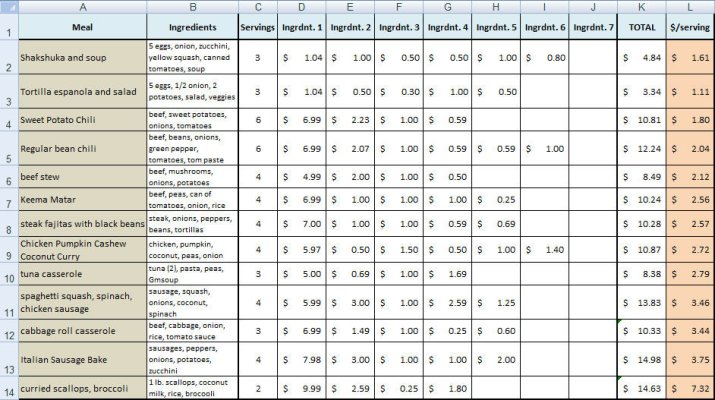I am always surprised that these things (quite commonly, in fact) get lumped into a mutual bin. Don't get me wrong (please) because I have no problem with someone doing it this way but I am merely trying to understand the thought process involved. For instance, how do "cleaning supplies" relate to "food"? (And [please] don't tell me that cleaning the toilet is the direct result of what took place at the dining room table.)
I have kept detailed spending records for about 25 years and I've gone back and forth on it.
I am currently at sort of a hybrid on it. Basically I lump Groceries and supplies in one category, but other things that I occasionally buy at the grocery store I do split out when I record the receipt.
So toilet paper, paper towels, batteries - all go in Groceries and Supplies.
On the other hand, if I were to buy a pair of reading glasses or cat litter at the grocery store those items get characterized separately.
Why do it this way?
For several years I actually split out the toilet paper, paper towels, batteries, etc. into a separate category for household supplies. I found that this was basically more trouble than it was worth. For example, in my state this is a PITA to do because these things are taxable while most food isn't (some food is taxable) so to split this out I had to split out all the little amounts for these items and then figure the tax on them.
Having spent the time to do it I found that it didn't really help me much on budgeting because these amounts spent over the course of a year were very stable and weren't something that was easily varied. That is - you need the toilet paper you need and I bought the same brand almost all the time so there wasn't much variation in this expense. So the variation in expenditure each month was pretty much all variation in the food part not the supplies part so it didn't really do much to split it out.
The reason I split out non-supplies is that these are things that are very variable and crucially are not things I typically buy at the grocery store. I usually get reading glasses at the pharmacy and those are very occasional. I usually get cat litter at Petsmart. I might rarely buy a magazine at the grocery store but I buy reading material from a lot of other sources.
I do think it is slightly more accurate to split the supplies out from the groceries but I also think that to actually do it is a little OCD and not worth the time.


 when managing expenses, then I question whether you are really FI. Perhaps you RTE'd (retired too early)
when managing expenses, then I question whether you are really FI. Perhaps you RTE'd (retired too early)